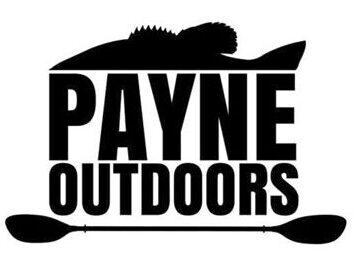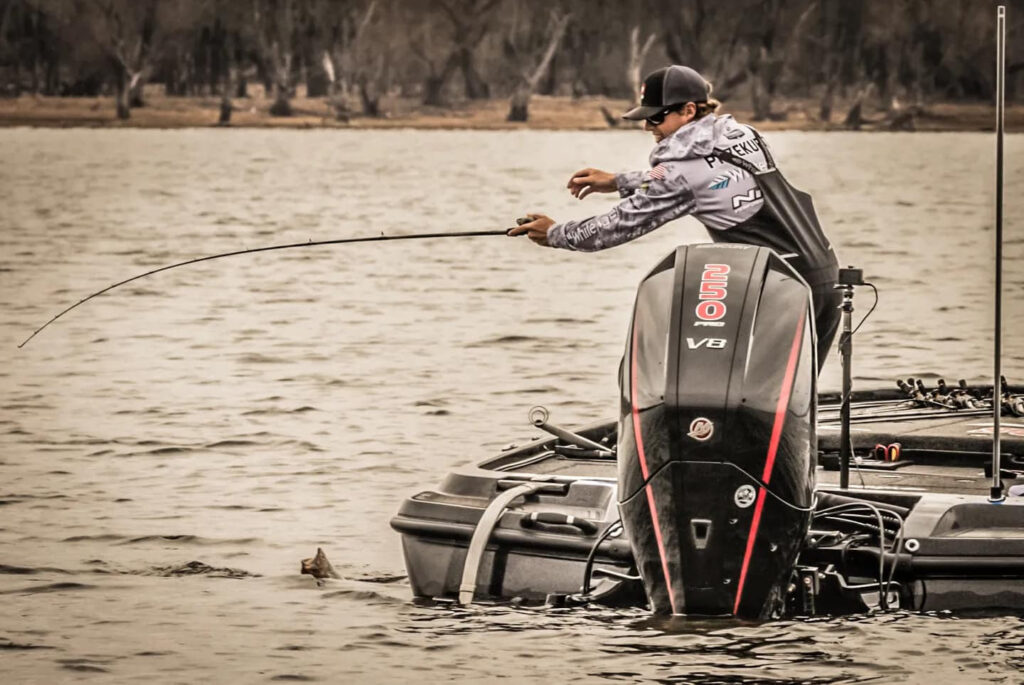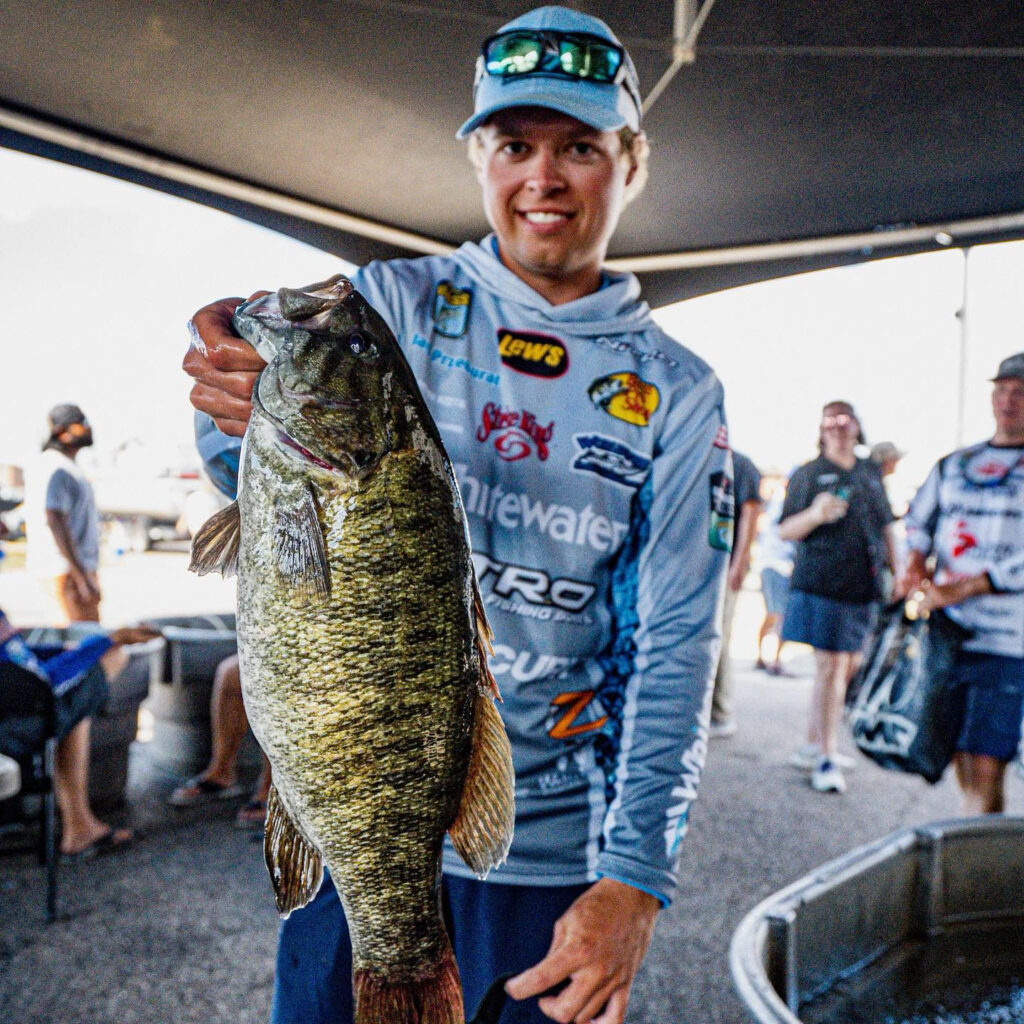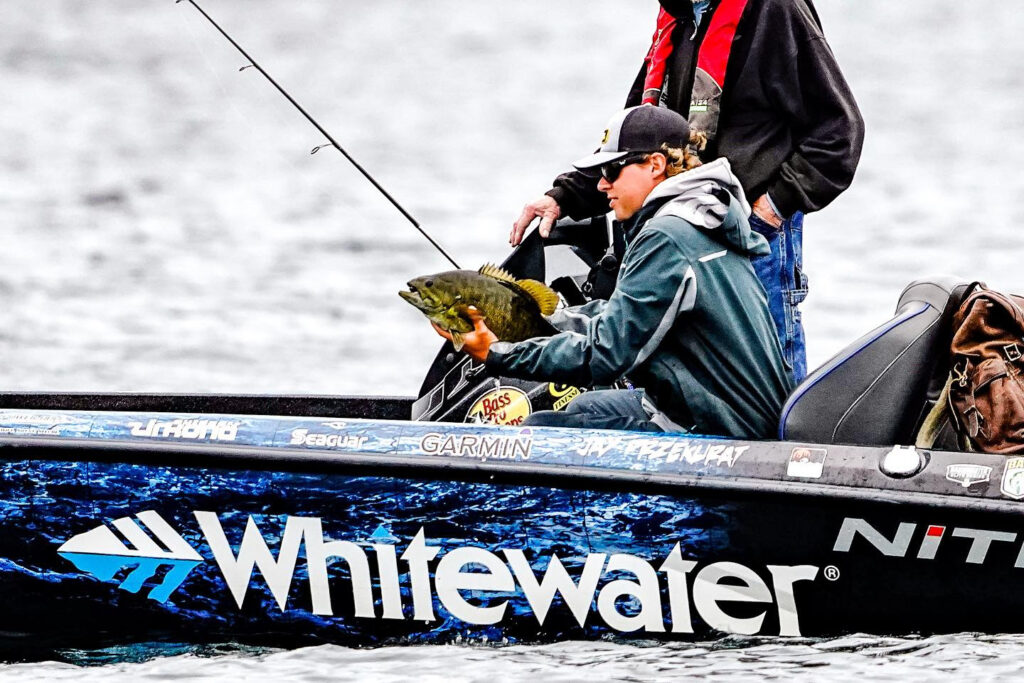
Table of Contents
ToggleWhitewater Fishing Pro, Jay Przekurat, shares brown bass wisdom that’ll work right now
MUSKEGON, Mich. (June 26, 2024) – In the northern and middle American states, smallmouth bass are either in post-spawn or post-post-spawn, meaning transition away from shallower spawning areas to deeper waters.
With regards to the former, the smallmouth bass post-spawn period, as B.A.S.S. Elite Pro, Jay Przekurat defines it, is “basically any water temps 60 degrees or higher. Summer patterns come into play from the high 60s through 70s, although depending on the location – like northern waters into Canada, smallmouth can spawn into August”
Przekurat is quick to point out that the “post-spawn” period means more than just surface water temperature. “We’re talking if it’s a windy day and the water is turned up and it’s 60 or greater bottom to top. And, for the most part, with water temps in the 60s, I’m fishing the same presentations I use during the spawn.”
For the young ace that means dropshots, Ned Rigs, jerkbaits, and other baits you “can get around beds and over rock and sand flats … things that stay up off the bottom.”
“Then, as water temps climb into the upper 60s to 70s, you start getting algae growing on rocks and stuff like that, making it a little harder to drag baits. A small black, purple, or black/purple marabou jig is great during the spawn and keeps catching fish a long time after, too. A lot of guys give up marabou jigs after the spawn, but smallies will eat them pretty much all the time.”
As smallmouth vacate shallower haunts with escalating water temps into summer patterns, Przekurat starts “beefing up spawn and post-spawn” baits. For example, he’ll fish spinnerbaits, bladed jigs ala Strike King Thunder Crickets, and A-Rigs when the fish are positioned deeper, roaming, and really putting on the feed bag.
“During summer, smallies can be just about anywhere. It really depends a lot on wind direction and being in the right area with food, the right water temp, the right bottom, etc. Smallies will swim and swim and swim to get on food. They roam a lot farther than most anglers might think.”
That’s where Przekurat’s electronics enter in – especially during the post-post-spawn period of summer.
“I use my LiveScope probably 50% of the time. But a lot of times, honestly, it’s hard to consistently use LiveScope because the water is so clear and I can cast nearly 100 feet. On a lot of waters, casting to fish 50 feet out doesn’t get you much. The bass have already seen and heard your boat. So I look out as far as possible with my LiveScope, get an idea where the fish are, and make super-long casts. Then I keep my fingers crossed that they bite before they’re aware of me.”
When asked if he thinks the pinging from FF sonar turns off smallmouths—or conditions them in some way—he’s ambivalent.
“You can spook them in clear waters, definitely, but smallmouth are inquisitive fish. They react to a lot of sounds and the presence of baits more positively than you might think. Drop an underwater camera and you’ll have them come right up and bump it with their mouths. They’re curious.”
Przekurat also likes fishing swimbaits in summer, casting them as far as possible, letting them hit bottom, followed by a slow retrieve back to the boat, never letting them touch bottom again. “That’s a great way to cover water, an easy way for any level angler to fish, and just a great way to get bites,” says Przekurat.
Post-Spawn and Summer Jerks
When it comes to jerkbaits, Przekurat deviates from the cast, twitch, and pause crowd, once again making Olympian casts and working the bait quickly back to the boat. “I don’t let it sit there and pause it forever like a lot of guys. If you’ve got a good wind going, throw it out—like with the wind if you’re working down a break—and rip it pretty good. At maximum, I’ll pause it only occasionally for two seconds. I’m looking for the aggressive bass.”
In terms of jerkbait gear, he likes 12-pound fluoro and Strike King KVD Elite jerkbaits that he says have improved action and needle-point sharp, triple grip hooks that don’t require swapping out.
Talking color, Przekurat says there’s really only one color you need on most smallmouth waters and that’s Pro Blue. “I might throw the Ayu pattern occasionally, but for the most part, it’s all Pro Blue. Just gets the job done everywhere. Matches a ton of bait.”
Dropshotting & The Damiki Rig
Another technique Przekurat puts into play from spawn through late summer is dropshotting. “
“As smallmouth transition out deeper, I start active LiveScoping. Obviously, you don’t have to worry about spooking them like when they’re in five feet of water. A dropshot works great for tough fishing conditions. I always have one on deck in case I see fish close to the bottom,” says Przekurat.
“The Damiki Rig starts to play a lot, too, during post-spawn through summer. I don’t care what anyone says about post-spawn. Those fish will start to feed on alewives and pelagic baitfish right away besides gobies on the bottom. Post-spawn and summer fish aren’t always on the bottom, and they aren’t always suspended.”
Orange Ain’t Just For Halloween
Looking ahead toward crawfish molting periods in mid- to later summer, Przekurat has a few tricks up his sleeve, including transitioning from his confidence green pumpkin patterns to more vibrant bait hues.
“Come summertime, I’m always dipping my plastic tails and the like into orange stuff, making it as vibrant as I can. Earlier in the year I prefer more dull colors, but in summer, I’ll go to the more vibrant oranges and reds to mimic craws.”
Favorite Summer Smallie Waters
Przekurat has had the opportunity to fish every bucket-list smallmouth bass river, lake, and reservoir in the country.
His favorite—in terms of quality and size bronzebacks?
“Number one is definitely Sturgeon Bay,” says the Stevens Point, Wisconsin, native. “And number two would be the St. Lawrence River connected to Lake Ontario.”
It should be noted that Przekurat caught a four-day total of 102-9 to win the 2022 Bassmaster Elite. At the time, the record for smallmouth-only bags caught in a Bassmaster event. The feat earned him entrance into the Bassmaster Century Club and $100,000.
Take Home
Give Jay’s advice a shot on your local smallmouth waters. His tournament track record proves his methods work. Period.
ABOUT WHITEWATER
Whitewater performance fishing apparel gives anglers distinct advantages whenever Mother Nature’s unpredictability conspires to ruin angling adventures. Whether faced with wind, rain, snow, sun, or extreme temperatures, Whitewater apparel equips anglers with the ability and confidence to overcome the elements, so they apply their focus and energies on fighting fish, not the conditions. Whitewater is a brand by Nexus Outdoors, headquartered in Muskegon, Michigan, USA. Learn more and order at whitewaterfish.com.
One thought on “How to Catch Smallmouth Post-Spawn Through Summer”
Comments are closed.




Great information, and a good read.